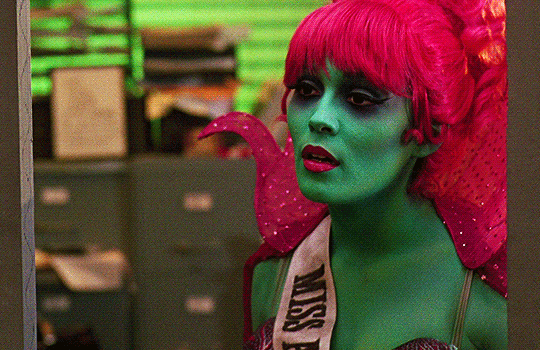HOW LONG SHOULD A BLOG POST BE? (YES, IT REALLY MATTERS)
As you probably already know, I offer blog management packages based on blog length. Inevitably, when I am working with a new client who is completely unfamiliar with the world blogging, they ask, “How long should a blog post be?”
Contrary to popular belief, writing blog posts isn’t just a free-for-all. Us writers are not just expounding on a topic until we simply run of material. Blog post lengths are consciously chosen based on the desired results of the blog post.
Different blog post lengths can produce different results, so there’s no clear answer to this question. However, I do have some general guidelines based on your goals for your business.
If you want to know how long a blog post should be, keep reading!
HOW LONG SHOULD A BLOG POST BE FOR SEO?
Many moons ago, the general advice was that blog posts should be at least 300 words in order to rank on Google. Now SEO experts recommend that you should write blog posts that are at least 1000 words. In fact, according to Hubspot, the best ranking posts are typically between 2250 and 2500 words!
Google does prefer long posts, provided that they are high-quality and fully relevant to the chosen keyword. Which makes sense, if you think about it. If you are really interested in learning about what a copywriter does, wouldn’t you rather read 2000 words on the subject rather than 500?
A good rule of thumb is to search for your chosen keyword or topic and click on the first search result. How many words are on this page? Aim for writing several hundred words more than the highest ranking article. For example, your chosen topic is “indestructible toys for dogs” and the top ranking blog post has 1000 words, your ideal blog post length will be more like 1200 words.
On the other hand, you don’t want to just ramble on for thousands of words with little consideration for the content of the post. If you hit your ideal post length but you don’t stick to the topic, Google will penalize you. Don’t write a post about the benefits of blogging for business and go off on 4-paragraph tangent about how much you love your dog (side note: look at my dog!). While your dog may be adorable, talking about subjects that don’t pertain to your topic will not help your Google ranking.
Furthermore, do not use keyword stuffing to extend your blog post length. Google hates this. It makes you look spammy to search engines and readers, so I recommend you avoid this method at all costs.
So how does Google know that a post is both long AND high quality? That is based on the relevant and related keywords in the text, and how often high ranking websites link to the blog post. How do you get high ranking websites to link to your blog post? By consistently writing high quality content that everyone loves and wants to share. Sorry, there’s no shortcut there. You must put in the work to get the results you want (and if you don’t want to put in the work, hire a freelance writer).
HOW LONG SHOULD A BLOG POST BE FOR MORE READERS?
Now you may be saying to yourself, “But wait a minute. People have short attention spans these days. Nobody READS anymore!”
That’s a rookie mistake!
Only a fraction of people will reach the bottom of the page, that’s true. But the people who do reach the bottom of the page will be your most loyal customers and followers. Those 10%-20% of people who read every word that you write are your tribe. Give those people what they want! Don’t worry about pleasing the masses.
Don’t believe me? Longer posts are the wave of the future, my friend. According to Coschedule, 12% fewer bloggers wrote posts of 500 words or less in 2017 compared to 2014 and 6 times as many bloggers wrote 2000+ word posts for the same time period!
Besides, no one will read your blog post at all if it doesn’t appeal to Google first. If a blog writer hits publish and no one finds it on Google, did they really hit publish at all? So, write that long post and get that dope search ranking!
Now, I’m not suggesting that you write blog posts with Dickensian walls of text. Even if your blog posts are long, you should write them so that they’re easy to read and skim. A few pointers on that topic:
Keep paragraphs short and succinct.
Use bullet points and numbered lists whenever possible.
Break up text by using italics and bold typefaces.
Add plenty of high-quality images (with relevant alt tags!).
Write captions for each image.
Use headings that summarize the main points of the article.
Further reading: How to Write Better Blog Posts (so people will actually want to read them, regardless of length)
HOW LONG SHOULD A BLOG POST BE FOR MORE COMMENTS?
Short on time? Shorter posts (think 300 words) can have their own positive results: they generate comments.
Short, Twitter-like posts can be used to ask your readers a question and generate discussion. Use these posts to listen in on the needs and desires of your readers and customers, so you can further tailor your content marketing strategy to suit them.
However, short posts like these are not very shareable, and they certainly don’t get picked up by search engines. While there is value in generating discussion on your website, I recommend focusing on longer posts for your content marketing strategy, and peppering in short discussion posts here and there.
If you don’t have much of an audience yet, focus your writing on longer posts that will generate more SEO traffic.
IDEAL BLOG POSTS LENGTHS
Okay, so that was a lot. If you’re still wondering how long should a blog post be, here’s some common blog post lengths and the sorts of results you can expect from them:
300 words or less – These short posts are great for increasing engagement by generating discussion. Use them as an opportunity to learn more about your audience, but avoid them if you haven’t built an audience yet.
300 words to 1000 words – This is the typical blog post length, which is great for readability and social shares. However, they are usually not long enough to generate decent search engine traffic.
1000+ words – If you want search engine traffic, you’ll want to write blog posts that are 1000 words or more. Write relevant, authoritative posts on topics that people are actually searching for, and you’ll see a nice boost in traffic.
THE BEST BLOG POST LENGTH FOR YOU
If you are writing about a topic you truly enjoy and want to write 2000+ words about it, I say go for it. On the other hand, if you can only manage a couple of hundred words, that’s fine too. After all, the most difficult part of the content marketing game is just producing any content at all!
And remember: every audience is different, so this isn’t a one-size-fits-all kind of thing. Experiment with different length blog posts and see how they fare. Edit an older post to give it some more length, publish it again, and measure the results. Following these recommendations will give you a great place to start, but only through experimentation will you discover the sweet spot for your individual audience.








